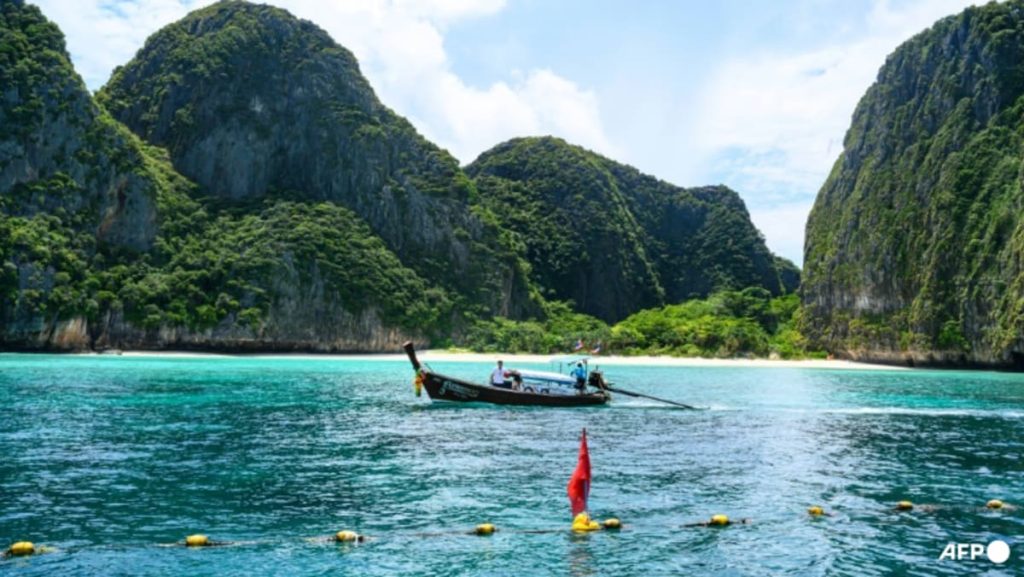The Koh Phi Phi archipelago, located off the west coast of southern Thailand, is famous for its stunning beaches and turquoise waters that attract hundreds of thousands of visitors each year. However, the region is currently facing a severe water shortage due to a deadly heatwave that has been impacting Asia. The heatwave, along with a prolonged period of low rainfall, has caused reservoirs on the islands to run low.
Wichupan Phukaoluan Srisanya, president of the Krabi Hotel Association, has expressed concerns that the private company providing water to the islands may have to stop the supply. Island authorities have discussed the possibility of shipping in water from the mainland if the dry weather continues, but they are hoping that the wet season, expected to arrive in May, will help alleviate the situation. Despite the challenges, Wichupan assured that efforts are being made to manage the water shortage and ensure that tourists visiting the islands are taken care of.
Local residents on the islands have reported facing fresh water shortages for months, with some hotels even experiencing limited bookings as a result. Returning tourists have also taken to online platforms like TripAdvisor to warn others about the situation, advising them to check if their accommodation has access to fresh water. One reviewer mentioned that tap water had stopped running on the islands, as the water reservoirs had been dry since the end of April.
Scientists have been warning about the impacts of human-induced climate change, predicting that it will lead to more frequent, longer, and more intense heatwaves in the future. The current heatwave is being driven by the El Nino phenomenon, but Asia is also experiencing a faster rate of warming compared to the global average, as highlighted by the UN’s World Meteorological Organization. It is essential for regions like the Koh Phi Phi archipelago to adapt to these changing climate conditions and implement sustainable solutions to mitigate the effects of water shortages in the future.
As the tourism industry plays a significant role in the economy of the islands, it is crucial to address the water shortage issues effectively to ensure the well-being of both residents and visitors. Authorities will need to work on implementing strategies that promote water conservation and sustainability, as well as investing in infrastructure that can withstand the impacts of climate change. By taking proactive measures to manage water resources and adapt to changing environmental conditions, the Koh Phi Phi archipelago can continue to attract tourists while maintaining the region’s natural beauty and resources for future generations.















